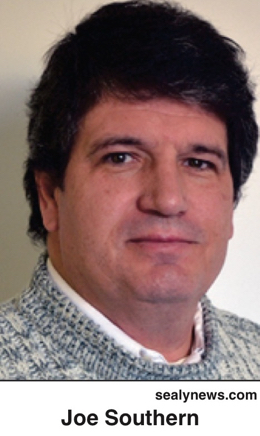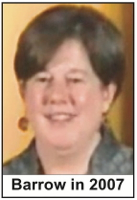Rascals case in brief
In the beginning, in 1989, more than 90 children at the Little Rascals Day Care Center in Edenton, North Carolina, accused a total of 20 adults with 429 instances of sexual abuse over a three-year period. It may have all begun with one parent’s complaint about punishment given her child.
Among the alleged perpetrators: the sheriff and mayor. But prosecutors would charge only Robin Byrum, Darlene Harris, Elizabeth “Betsy” Kelly, Robert “Bob” Kelly, Willard Scott Privott, Shelley Stone and Dawn Wilson – the Edenton 7.
Along with sodomy and beatings, allegations included a baby killed with a handgun, a child being hung upside down from a tree and being set on fire and countless other fantastic incidents involving spaceships, hot air balloons, pirate ships and trained sharks.
By the time prosecutors dropped the last charges in 1997, Little Rascals had become North Carolina’s longest and most costly criminal trial. Prosecutors kept defendants jailed in hopes at least one would turn against their supposed co-conspirators. Remarkably, none did. Another shameful record: Five defendants had to wait longer to face their accusers in court than anyone else in North Carolina history.
Between 1991 and 1997, Ofra Bikel produced three extraordinary episodes on the Little Rascals case for the PBS series “Frontline.” Although “Innocence Lost” did not deter prosecutors, it exposed their tactics and fostered nationwide skepticism and dismay.
With each passing year, the absurdity of the Little Rascals charges has become more obvious. But no admission of error has ever come from prosecutors, police, interviewers or parents. This site is devoted to the issues raised by this case.
On Facebook
Click for earlier Facebook posts archived on this site
Click to go to
Today’s random selection from the Little Rascals Day Care archives….
Click for earlier Facebook posts archived on this site
Click to go to
Today’s random selection from the Little Rascals Day Care archives….
View from exoneree: Jurors, be skeptical about professionals’ claims

nooncaprop66.org
Francisco Carrillo Jr.
April 14, 2017
“In wrongful convictions, the jury at some point was misled, either by false testimony or bad evidence. It’s the unspoken piece that the jurors – the public – are the ones who are ultimately used to convict someone unjustly because they were misled.
“When you’re selected, you’re officially deputized to be part of the system, and the jury can’t take the nonchalant position of ‘The professionals know what they’re doing, we’re just here.’ No, you’re a key part of this. You have to think about it, and if you don’t ask, if you don’t speak up if there’s a doubt, someone’s life could be ruined.”
– Francisco Carrillo Jr., quoted in “Wrongful-convictions database moves to UC Irvine” in the Los Angeles Times (April 14)
Carrillo spent 20 years in prison for a fatal drive-by shooting in Los Angeles County, Calif. His conviction was overturned in 2011.
Gullibility was only one of the problems corrupting the decision-making of Bob Kelly’s jurors.
![]()
How one young reporter changed his mind
 Nov. 8, 2014
Nov. 8, 2014
“In the summer of 1989, I accepted my first job at a daily paper when The Daily Advance hired me to cover a two-county beat – Chowan and Perquimans. When I arrived, Bob Kelly had just been arrested and charged in about a dozen cases. My editor told me about it, almost in passing, and said, ‘You might want to keep an eye on it.’ I did, and for the next two years it consumed my life.
“I was 24 years old with a wife of two years and no children. I had no experience reporting on police and courts and was very naive as to how the system worked. As the case expanded I became convinced of the defendants’ guilt. Their lawyers wouldn’t let them talk and they were hard to reach in jail. Prosecutors were also tight-lipped, but some of the parents couldn’t stay that way.
“For two years all I had to go on were the stories of parents and what I believed to be a mountain of evidence in the hands of prosecutors. Shortly before Bob’s trial began, three important things happened. I finally got to interview two of the defendants (Robin Byrum and Scott Privott). Their stories were very convincing and I was no longer certain of their guilt. I was also promoted to an editing position and was no longer actively reporting on the case. I was in charge of the reporters who would. Also at this time the ‘Frontline’ show came out, pretty much blowing the lid off the prosecution’s case.
“As Bob Kelly’s trial unfolded, I found that the prosecution had little to no evidence. My faith in the case was weakened and I was surprised when Bob was convicted. Then another defendant (Dawn Wilson) fell and Bob’s wife Betsy Kelly pleaded no contest. That upset me because I was convinced she was innocent and I wanted her to fight and prove it.
“At this point in my life, I had become a parent and soon my first marriage would end. I returned home to Colorado but continued to follow the case from afar. I was happy when the convictions were overthrown and the other charges dropped. As a parent I could now see and understand that what was normal childhood behavior was being grossly misinterpreted as signs of child sex abuse.
“In hindsight, I feel bad for everyone involved in the case. Both sides went through hell. Most of all, though, I feel for the children. Their lives were altered and family and community dynamics changed by forces beyond their control and beyond reason.”
– Joe Southern, recalling his experience covering the Little Rascals case for the Elizabeth City Daily Advance
This 1991 piece, reprinted in a Del Rio, Texas, paper, seems to be reporter Southern’s lone Little Rascals story to survive online. He is now managing editor of The Sealy News in Sealy, Texas.
More recently, the Daily Advance has shown far less interest in the case – well, none, actually – or in Nancy Lamb’s responsibility for pursuing and prolonging it.
For Betsy Kelly’s sister, a chillingly close call
 July 26, 2013
July 26, 2013
Rereading appellate defender Mark Montgomery’s thunderously compelling brief on behalf of Bob Kelly always delivers something I had either passed over earlier or forgotten. This time it was that
“(Jimmy) and Nancy Smith also declined to have their son Judson evaluated by one of the four therapists who saw the other children. By the time of trial, both Mr. and Ms. Smith had been accused by several children as having participated in the abuse. (One of the child-witnesses) said of Nancy Smith, ‘She’s Miss Betsy’s sister, so she must be mean.’ ”
The Smiths’ close call highlights once again the terrible randomness of the Little Rascals prosecutors’ accusation process.
How challenging the prosecutors’ decision-making must have been: Which child-witness had been adequately manipulated, and which couldn’t be counted on to earnestly describe the sharks, the butcher knives and the dead babies? Which innocent adult was vulnerable, and which might strike jurors as just too unlikely a serial ritual-abuser?
Nancy Smith (Barrow) recalls today that “I had NO idea I had been accused until working with (defense attorneys) Mike Spivey and Jeff Miller for Bob’s trial. I happened to read some notes from police interviews and saw my name more than once….
“No member of my family – mother, father, Laura, Leslie, or Judson – was ever interviewed by police or prosecutors. Jimmy and I talked with Brenda Toppin one afternoon in her office. She only wanted to know about the state of Bob and Betsy’s marriage.”
When ‘backlash spewed,’ Judy Abbott blamed ‘falsehoods’
Oct. 19, 2012
“The backlash spewed from the guilty verdicts in the Little Rascals Day Care case have (sic) been painful and difficult to hear and live with. Those of us who advocate for the rights of children often feel that the gains made on their behalf over the past few years are eroding under falsehoods propagated by individuals who’s (sic) motives are undetermined.”
– From “Little Rascals Day Care Center Case: The Bitter Lesson, a Healthy Reminder” by Judith Steltzner Abbott (1994)
If the editors of the Journal of Child Sexual Abuse set aside six pages in hopes therapist Judy Abbott might respond thoughtfully to the Little Rascals “backlash,” they were surely disappointed. Instead, she dodged reality with platitudes and self-congratulation.
Of course, even to acknowledge the concerns of her falsehood-propagating critics (the ones with “motives undetermined”) might have put at risk her nomination for the Distinguished Women of North Carolina Award.











0 CommentsComment on Facebook